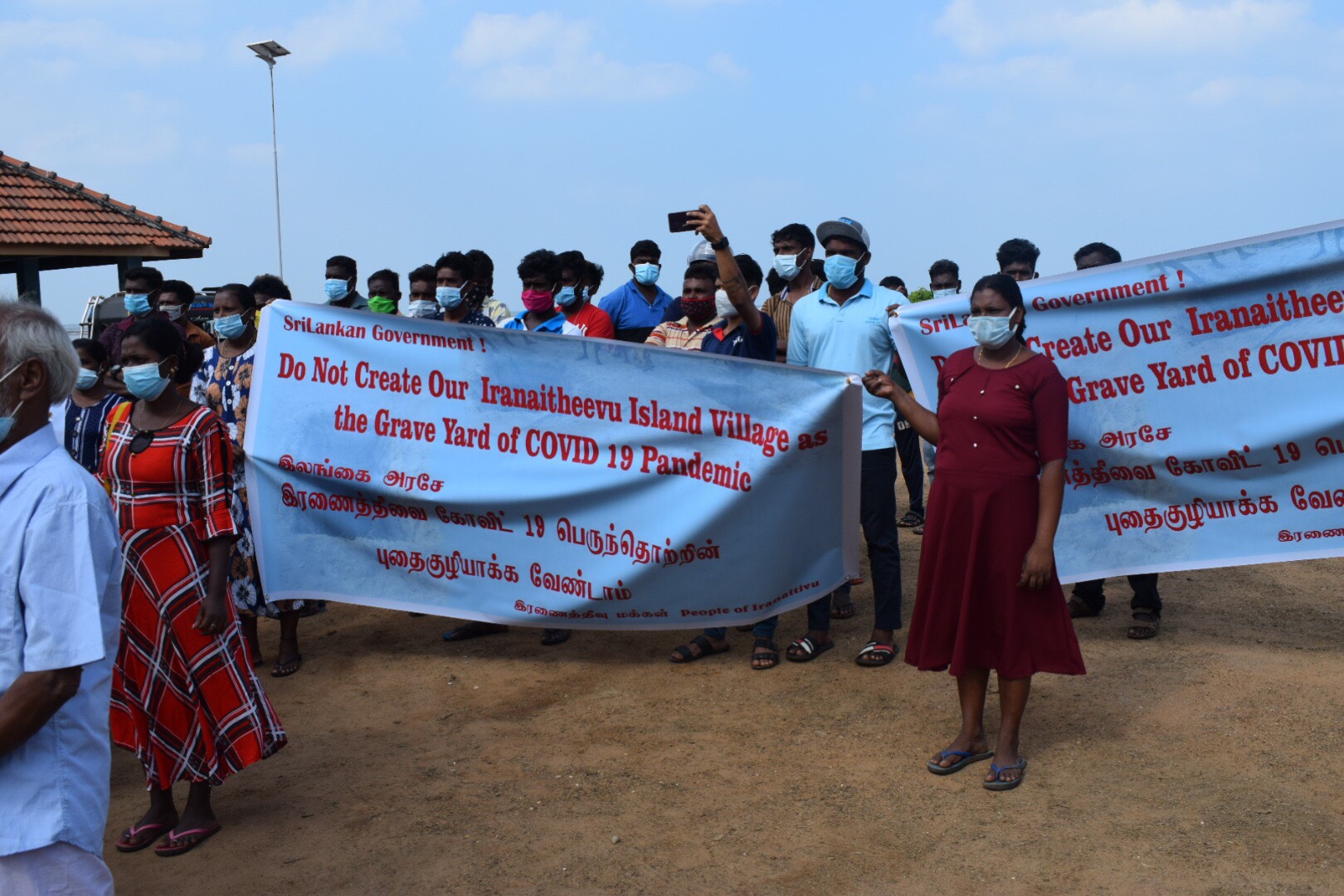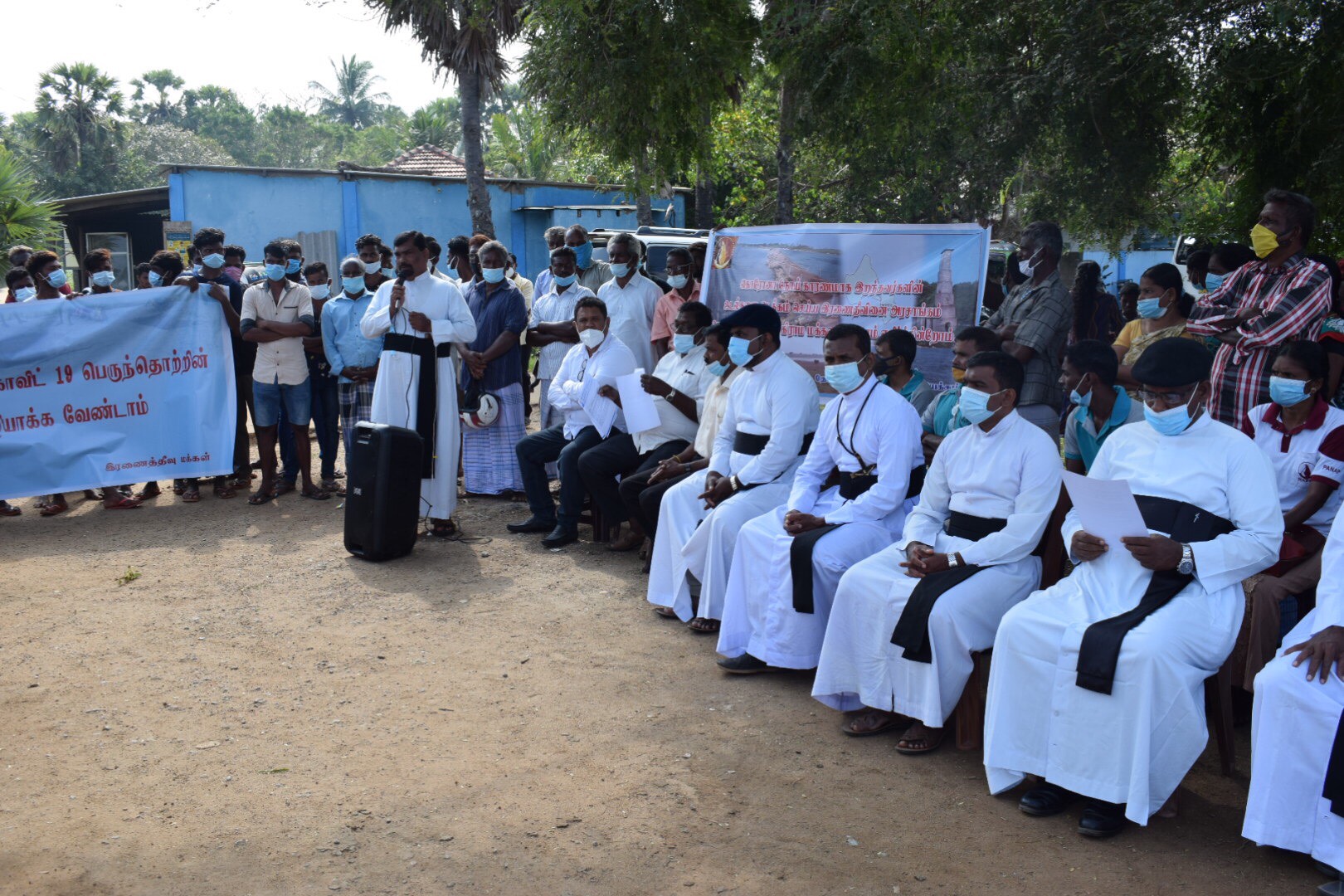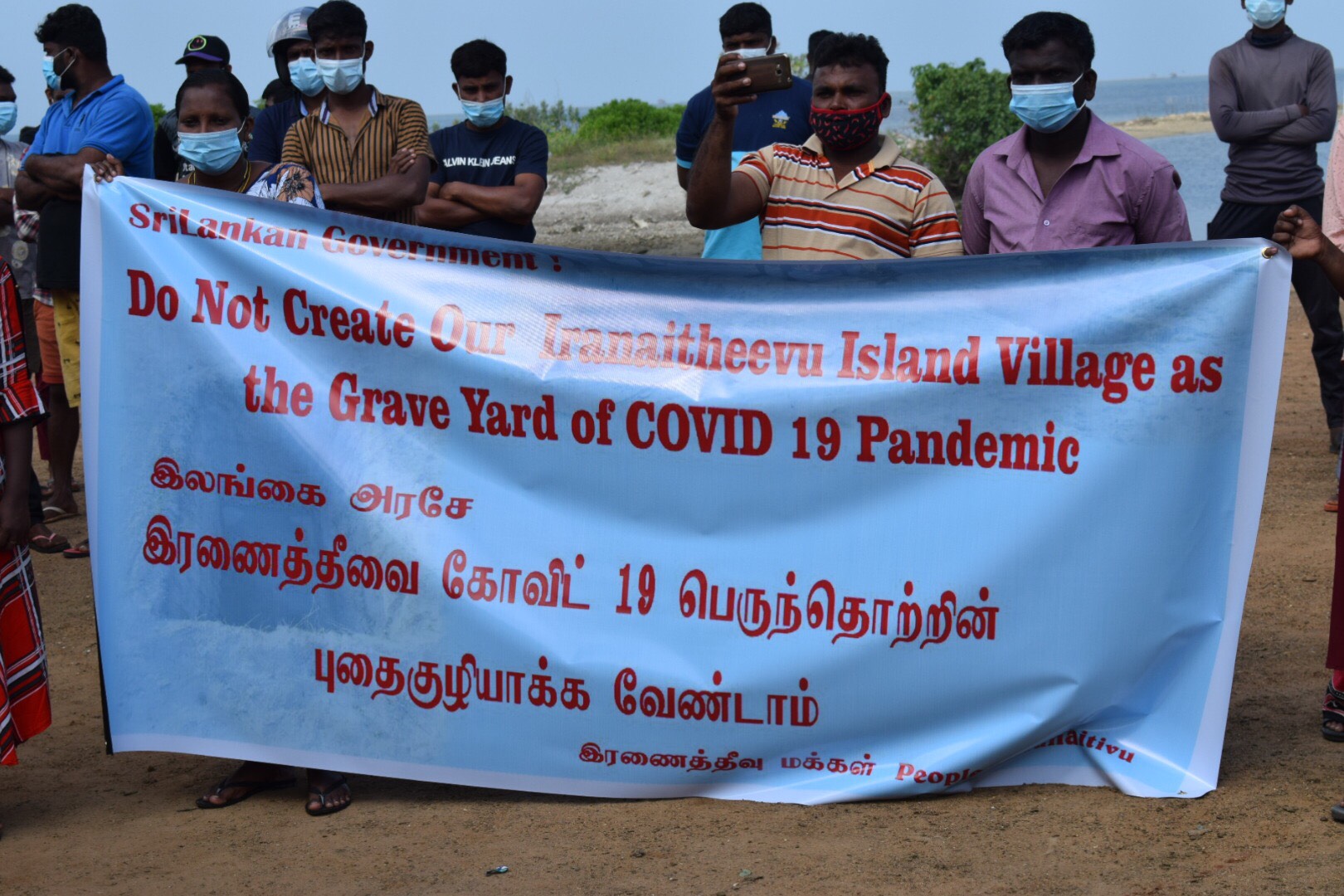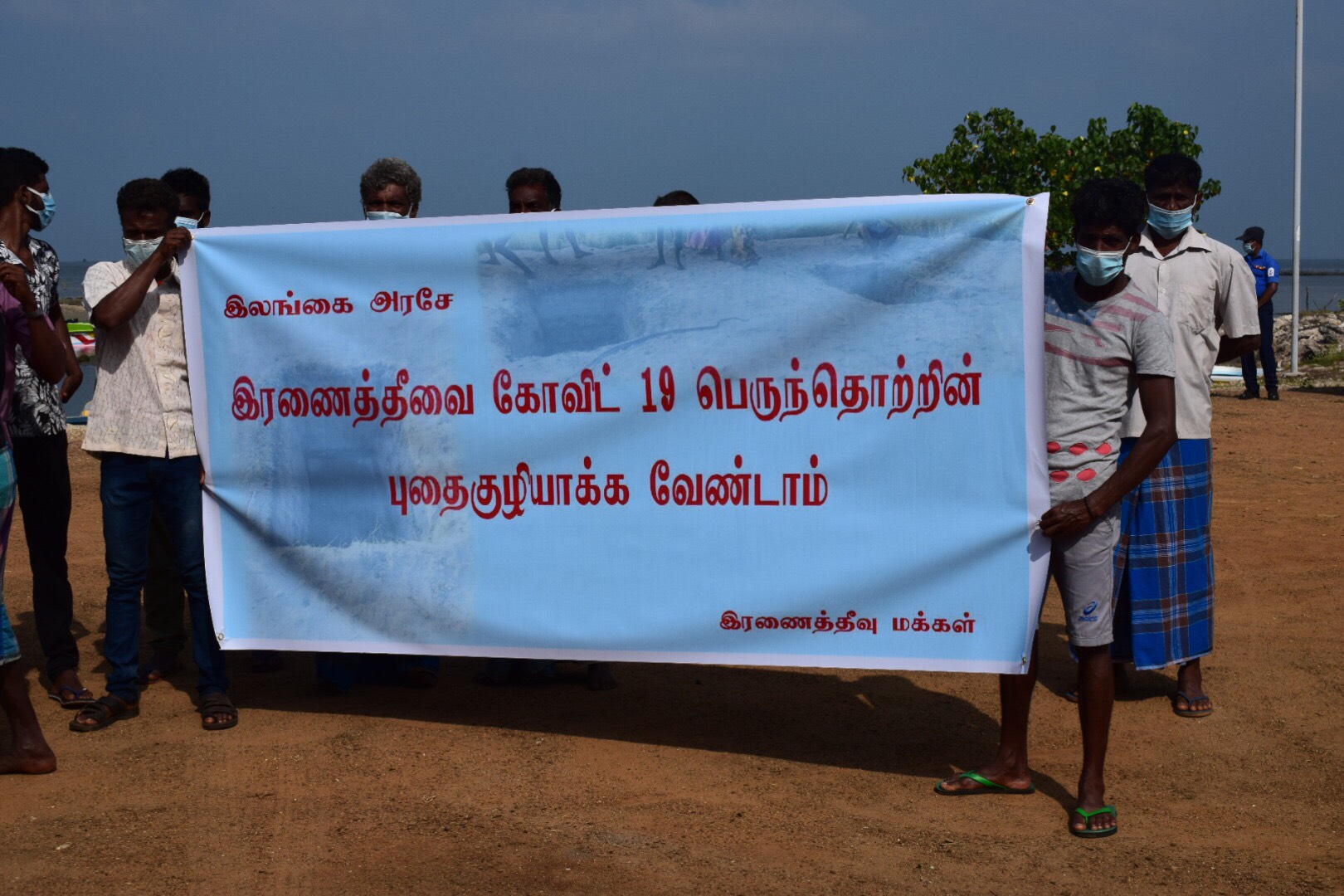
Tamil residents of Iranaitivu staged a protest today morning in opposition to the Sri Lankan government’s decision to bury the victims of COVID-19 on the island.
Father Madutheen Pathinather, a priest on Iranaitivu island, expressed serious concerns over the announcement yesterday and led the protest this morning after Sri Lankan navy started digging up graves to bury COVID-19 victims. “It causes great agony that actions have been taken without any permission from us. Iranaitivu is completely surrounded by water and its people are already concerned about the COVID-19 virus spreading through water. At a stage where the people have just recently taken up residence back in their homes and are returning to normalcy step by step, they would never accept this decision by the government.”

The Kilinochchi district Chief Minister, religious leaders, members of the National Fisheries Cooperation Movement and local residents were among those in attendance. Father Madutheen Pathinather read out a letter sent to the government urging them to reconsider their decision.

The Sri Lankan government claimed that Iranaitivu had been chosen on the basis that it is “thinly populated”. However, Father Madutheen Pathinather condemned this statement highlighting that the island is home to over 360 families and people have only recently returned to their homes in the midst of great struggle. He also questioned why the Sri Lanka government chose to ignore the multiple areas suggested by the Muslim community to bury their dead and to designate it to a Tamil area that is still reeling from the effects of prolonged military occupation.

Demonstrators held banners with Tamil and English slogans opposing the decision, with one of the held banner's reading, " Do not create our [Iranaitivu] island village as the graveyard of COVID-19 pandemic".
Following the protest, the letter was handed over to the offices of the Poonakary Divisional Secretary, Jaffna District Bishop and the Jaffna Human Rights Commission.
The letter emphasised that the "we" the people of [Iranaitivu] along with the North and East people will “continuously stand up for the burial rights of our fellow Muslim community and voice against the forced cremations. We emphasi[s]e that the dead bodies must be given due respect according to the universal humanitarian values. Transporting the dead bodies of COVID infected persons place to place is a violation of the dignity of those deceased as well as their families.”
Read the full letter here.
The Sri Lankan navy in 1992, displaced at least 242 families. On May 1 2017, Tamil villagers protested defiantly to reclaim their land. By mid-May, the military stated that the villagers could resettle but they would retain 9 acres of the land to maintain their camp but neither the government or local authorities had taken steps to support their resettlement despite high profile calls for action. Many Tamil villagers sailed back to their homes and bravely insisted they would not move until their land was presented back to them, despite risking repercussions from the Sri Lankan military for their resistance.
The decision has been widely criticised and described by many as an ingenious ploy by the government to induce tensions against the Tamils and Muslim communities regarding the forced cremation issue.
The hurried measures to lift the burial ban also coincides conveniently whilst the 46th United National Human Rights Council session are happening, in which Sri Lanka has been noted for its mounting human rights concerns against its marginalised communities.
We need your support
Sri Lanka is one of the most dangerous places in the world to be a journalist. Tamil journalists are particularly at threat, with at least 41 media workers known to have been killed by the Sri Lankan state or its paramilitaries during and after the armed conflict.
Despite the risks, our team on the ground remain committed to providing detailed and accurate reporting of developments in the Tamil homeland, across the island and around the world, as well as providing expert analysis and insight from the Tamil point of view
We need your support in keeping our journalism going. Support our work today.
For more ways to donate visit https://donate.tamilguardian.com.

